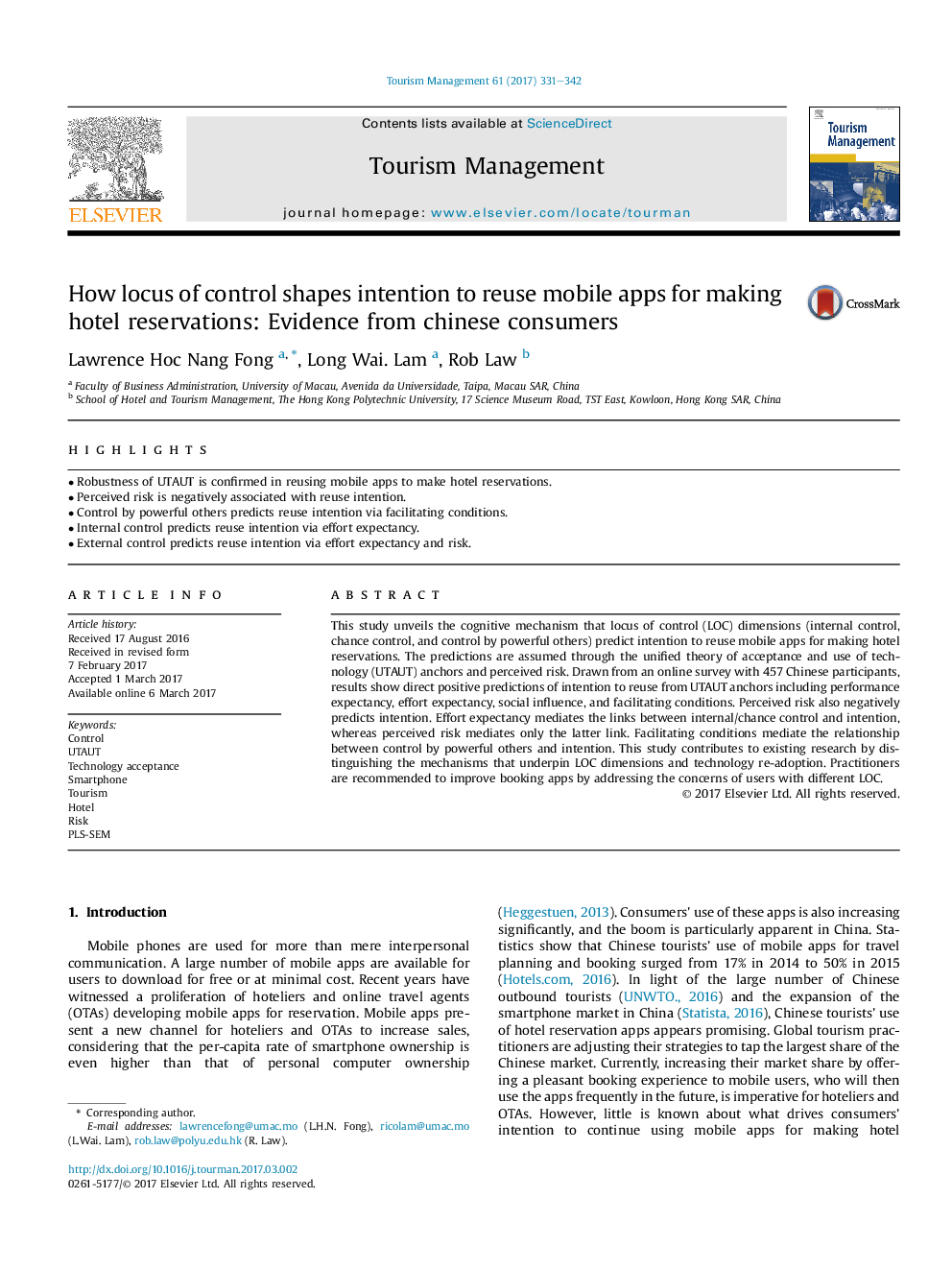| Article ID | Journal | Published Year | Pages | File Type |
|---|---|---|---|---|
| 5108497 | Tourism Management | 2017 | 12 Pages |
â¢Robustness of UTAUT is confirmed in reusing mobile apps to make hotel reservations.â¢Perceived risk is negatively associated with reuse intention.â¢Control by powerful others predicts reuse intention via facilitating conditions.â¢Internal control predicts reuse intention via effort expectancy.â¢External control predicts reuse intention via effort expectancy and risk.
This study unveils the cognitive mechanism that locus of control (LOC) dimensions (internal control, chance control, and control by powerful others) predict intention to reuse mobile apps for making hotel reservations. The predictions are assumed through the unified theory of acceptance and use of technology (UTAUT) anchors and perceived risk. Drawn from an online survey with 457 Chinese participants, results show direct positive predictions of intention to reuse from UTAUT anchors including performance expectancy, effort expectancy, social influence, and facilitating conditions. Perceived risk also negatively predicts intention. Effort expectancy mediates the links between internal/chance control and intention, whereas perceived risk mediates only the latter link. Facilitating conditions mediate the relationship between control by powerful others and intention. This study contributes to existing research by distinguishing the mechanisms that underpin LOC dimensions and technology re-adoption. Practitioners are recommended to improve booking apps by addressing the concerns of users with different LOC.
